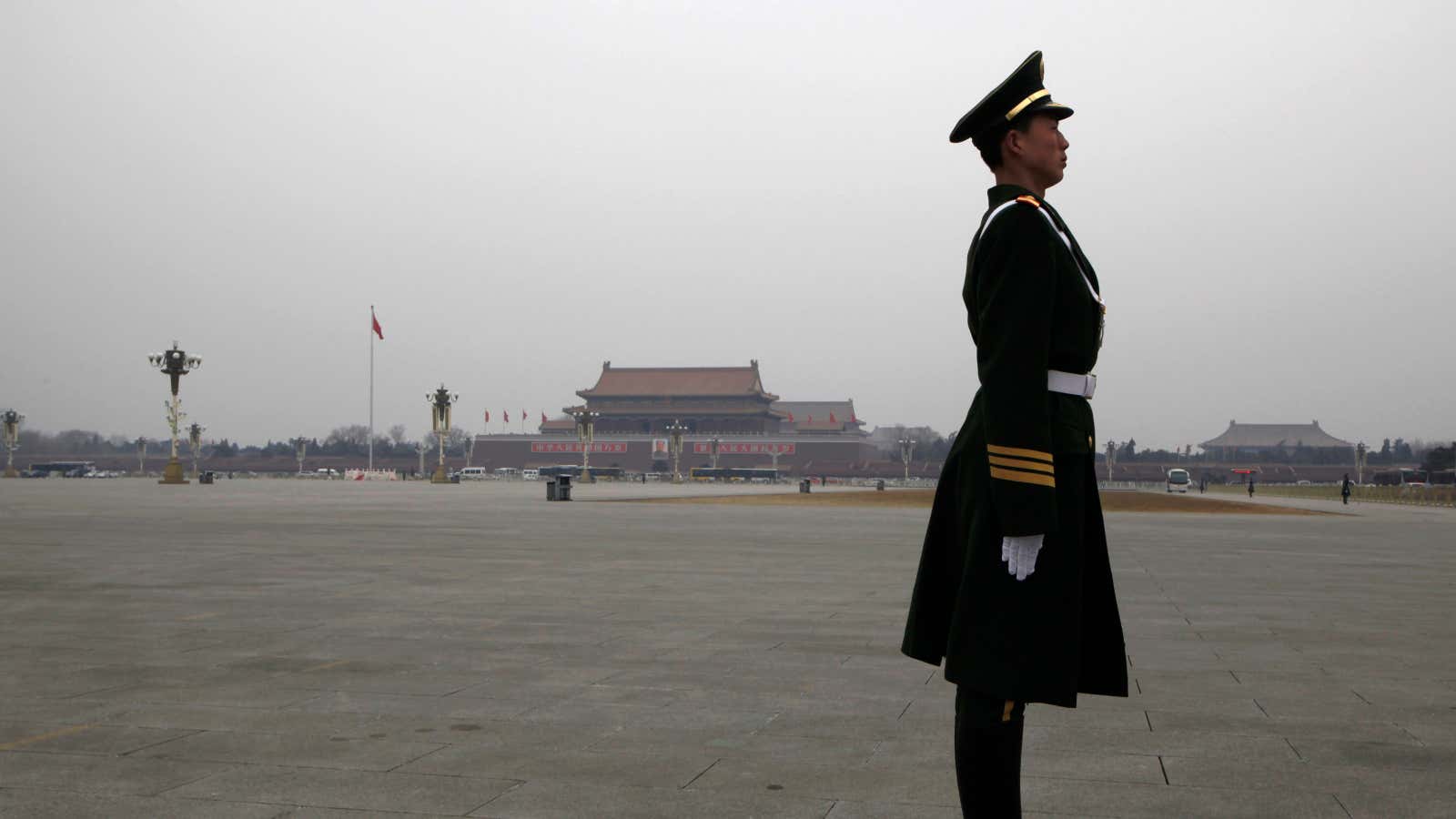Miao Deshun was a young factory worker when he was arrested in June 1989 with thousands of others in the massive pro-democracy protests that took place in Beijing’s Tiananmen Square. He was one of about 1,600 people who received formal prison sentences. His crime was allegedly throwing a basket at a burning tank, for which he was convicted of arson and received a death sentence with a two-year reprieve.
China’s government later commuted the punishment, and Deshun has remained living in prison ever since. Although other protestors were gradually released, he was not. For years it was unclear whether he was even alive. But today (Oct. 15), he is finally scheduled to be freed, according to Dui Hua, a US-based group that advocates for China’s political prisoners. (The Associated Press has tried to independently verify the date, but China’s Ministry of Public Security and the Beijing Higher People’s Court did not respond to its requests for comment.)
At 51, Miao Deshun has spent half his life imprisoned. He is ill, both physically and mentally. Dui Hua says he suffers from schizophrenia and hepatitis B, and he has had no contact with the outside world for some time. At his own request, his family stopped visiting him about a decade ago. ”No one other than prison officials or other prisoners in the ward for sick and disabled prisoners have seen him for many years,” John Kamm, Dui Hua’s executive director, told the Associated Press.
Former prisoners who knew him describe a quiet man under constant abuse. One inmate told the Washington Post that guards frequently beat Deshun with electric batons, and another prisoner recounted his memory of Deshun screaming during the electrocutions that he endured. One of Deshun’s former cellmates told the BBC two years ago that Deshun was terribly thin and frequently depressed.
Deshun’s former inmates believe he has remained captive so long because he refuses to admit any wrongdoing: He has reportedly refused to sign letters that say he regrets taking part in the Tiananmen protests, and has resisted obeying prison regulations. This has regularly landed him in solitary confinement.
Now, he is supposedly scheduled for release because of his good behavior. But even if the reports are accurate and he does get out, Deshun will not be entirely free. “He might find himself leaving a small jail but entering a bigger prison,” Hu Jia, a human-rights activist, told the Post. “He’s likely to find himself surrounded by state security police upon his release, something unimaginable before he went to jail. Release from jail does not necessarily mean more freedom.”
He would also be without certain political rights for seven years, such as the rights to freedom of speech and to vote. By the time he reaches equality with the population he will soon walk among, he will be 58.




